When Is It Time to Stop Using a Baby Monitor?
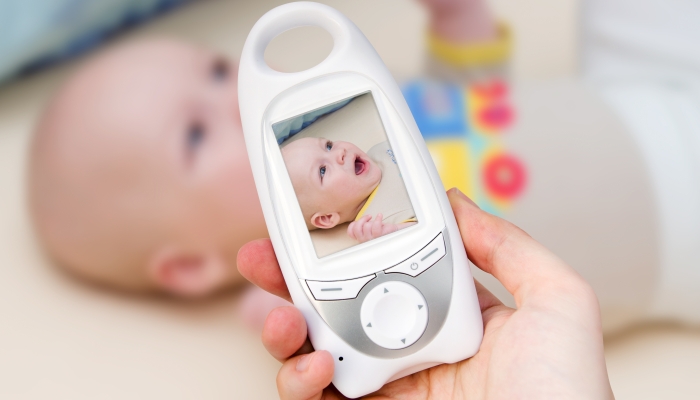
- Deciding when and how to use a baby monitor is a personal decision.
- Parents may decide to stop using a baby monitor when it becomes too distracting, disrupts their sleep, or increases their anxiety.
- Even when you stop using a baby monitor at night, it can still be a helpful piece of baby equipment.
A baby monitor can be one of the most useful things a new parent can buy. Most parents would tell you that a baby monitor is essential. Knowing that your baby is okay when they’re not in the room with you can help parents sleep and feel less anxious.
Baby monitors are great for first-time parents, to help them feel confident that their babies are safe and that they haven’t missed any cries. Today’s advanced baby monitors also help parents feel connected to their babies throughout the working day through their smartphones.
Although they’re practical and reassuring, baby monitors can sometimes do more harm than good. Constant monitoring of your child over time can become distracting and anxiety-provoking. It can even start to disrupt your sleep.
If you’re wondering when to stop using a baby monitor, there are some signs that it may be time to turn it off.
Baby Monitors: Pros vs Cons
Using a baby monitor is a personal choice. It helps many parents feel secure while it may provoke anxiety in others. The primary reason for using a baby monitor is to hear if your baby needs you when they’re in a different room, most commonly when they’re asleep.
To figure out whether you need a baby monitor, it may help to think about the pros and cons:
|
|
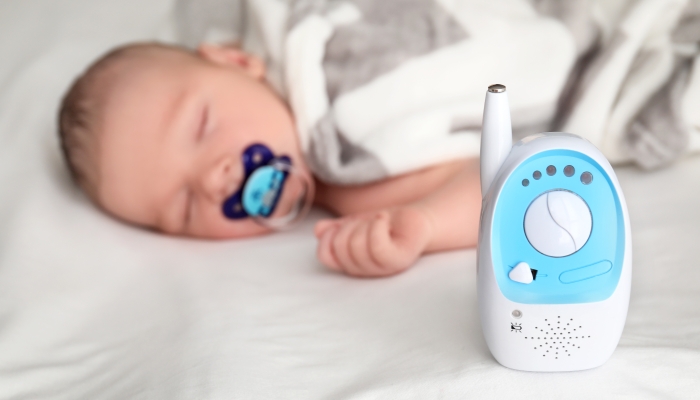
How Do I Choose a Baby Monitor?
As you can see, a baby monitor can certainly be helpful. However, if you’re constantly checking it, you might find that it’s becoming distracting. It may even cause feelings of guilt, anxiety, and distrust of outside caregivers.
Factors to consider when choosing a baby monitor include the following:
- Size of your home
- Distance between your baby’s room and your bedroom
- Other uses for the monitor, such as travel or visiting grandparents
- How lightly or deeply parents sleep
- Cost
- Level of technology you’re comfortable using
- Your baby has a health condition you’re concerned about
- Your personal parenting style
Remember that the American Academy of Pediatrics safe sleep guidelines state that babies should sleep in the same room as their parents but in their own bed for at least the first six to twelve months.
Even if you don’t need a monitor for nighttime sleep yet, it can still be useful for daytime naps. You’ll know your child is safe while you’re working or in another space in the house. You also won’t disturb them.
Baby monitors range from the most basic audio monitor to video monitoring systems with smart technology and big price tags. The level of tech you’re comfortable with and your budget are significant factors in choosing a baby monitor.
Are Heart and Breathing Baby Monitors Safe?
Monitors with heart and breathing sensors are popular with parents. But medical experts recommend that parents not rely on these baby monitors because their effectiveness is not proven.
A research letter published in the Journal of American Medical Association (JAMA) in 2018 stated that these monitors are not FDA-regulated and do not consistently report babies’ breathing rates.
The inconsistency of their performance is a cause for concern. The monitors can misreport a child’s breathing and heart rates, resulting in unnecessary medical intervention and increased parental stress.
Furthermore, the National Institute of Child Health and Human Development (NICHD) also warns parents against using these monitors to reduce the risk of sudden infant death syndrome (SIDS). Despite what the manufacturers may claim, there is no proof that they’re effective at reducing SIDS.
Parents are advised to follow official guidance on creating a safe sleeping environment to reduce the risk of SIDS. Not all modern technology is best when it comes to baby monitors.
Reasons to Stop Using a Baby Monitor
There is no hard and fast rule about when to stop using a baby monitor. You may find that you gradually rely on it less and less as your baby’s sleeping patterns become more predictable or as they grow from newborn to toddler.
Or, you might be agonizing about whether it’s okay to stop using it and feel guilty about wanting to turn it off.
There are a few factors to consider to guide your decision to stop using a baby monitor.
The monitor is disrupting your sleep.
When your baby is around a year old and sleeping through the night, or at least not waking as much, you might find that all the sounds the monitor is picking up are actually keeping you awake.
Your baby makes lots of sounds at night naturally, which are just a part of their sleeping and dreaming. If the monitor picks up every sound and deprives you of sleep, it may be time to turn it off.
The monitor is a distraction.
Some parents may feel compelled to check their video baby monitor continually. Unfortunately, constant monitor checking can increase your anxiety.
If the monitor becomes a preoccupation, it may be time to turn it off. Alternatively, turn off the video monitor or downgrade to a basic audio monitor. That way, you’ll know when your child is crying, but you won’t be distracted by color video and constant alerts on your phone.
Your toddler finds it distracting.
As your toddler gains awareness of the monitor, they might find it distracting. They may also rely on your presence through the monitor to fall asleep, making learning to sleep independently more difficult.
In addition, your older child may always have the sense of being watched. This can disturb sleep. If the monitor is on in the daytime and they’re watched playing, it can also inhibit creative and imaginative play.
Your child’s room is close enough, and they are old enough.
Baby monitors are reassuring when your baby is young and still feeding at night.
However, once your baby is past the age of one, settled in their room and close enough that you can still hear them, your family may be ready for life without the monitor.
Note, however, that many families continue to use baby monitors until around the age of four when children can express themselves more easily or when they become aware of the monitor.
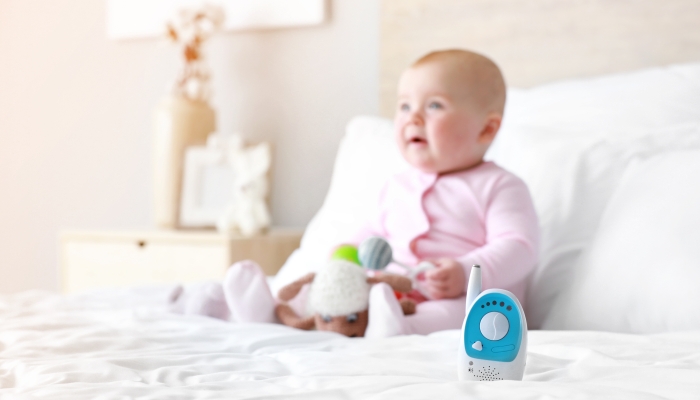
When Is the Right Time to Stop Using a Baby Monitor?
If you want to try turning off the baby monitor, there are some times that may be better than others to experiment. To stop using the monitor, consider doing so at a time when:
- Your baby is settled into a good sleep routine.
- Your baby is well and not teething.
- Your baby has been sleep trained.
- Your baby is not waking in the night to feed anymore.
How to Gradually Stop Using a Baby Monitor
You may feel sad or anxious when you turn off the monitor for the first time. That’s an entirely understandable response. Still, if it’s time to bring monitor use to an end in your home, you can use a gradual approach.
Stop video monitoring as a first step and switch to audio-only. As you get used to life without checking the video monitor, soon you’ll be able to turn audio off too.
Or, you may use the monitor for nap time during the day while moving around the house, but switch it off for nighttime sleep if you feel confident doing that.
Finally, you don’t have to disconnect the monitor completely and put it away at first. Instead, you can just switch it off.
If you’re feeling anxious, you can always turn it back on. But trying to keep it off for more extended periods every night will eventually get you out of the habit of constantly checking for it.
When to Consider Using a Baby Monitor Again
While you may have stopped using the monitor, you definitely shouldn’t throw it away. There may be occasions that arise when the baby monitor will come in handy even when you no longer use it regularly.
When your baby is sick or teething.
When your baby is sick or teething and has a fever, upset tummy, or a bad cough, use a baby monitor to let you know when your little one needs you.
You may not always need to watch your healthy baby sleep, but bringing the baby monitor back out when they’re sick can give you peace of mind.
When siblings are sharing a room.
When you’ve moved a younger sibling into a bedroom with an older toddler, it’s a good time to get the monitor out again for everyone’s safety and peace of mind.
If your child’s sleep is disturbed.
Older kids can go through periods of sleep regression or disruption, including nightmares or sleepwalking. In addition, toddlers might experience a period of separation anxiety at night.
The monitor can alert you to any trouble your older kids might have. It may also reassure them that you’re present if they’re having trouble settling down.
If you’re traveling or on vacation.
A baby monitor can be reassuring if you’re traveling and staying with friends or relatives or you’re going on vacation.
A baby monitor can help you relax if you’re staying somewhere large or unfamiliar. You can put your baby or toddler down for naps, or your kids can play in a different area, and you can be reassured that they’re okay.
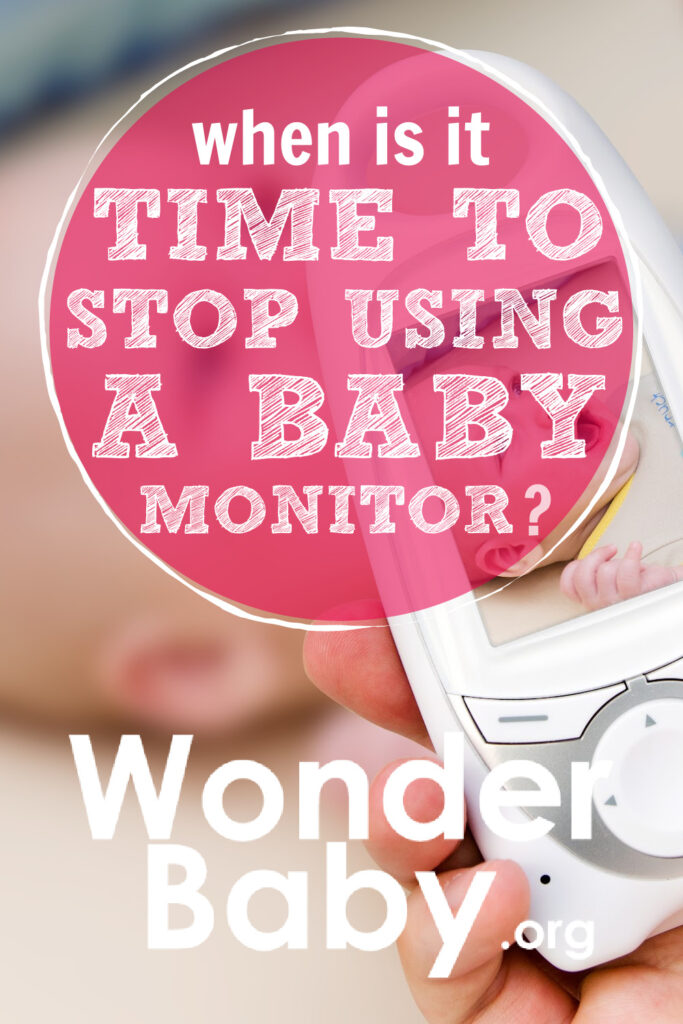
Related Posts
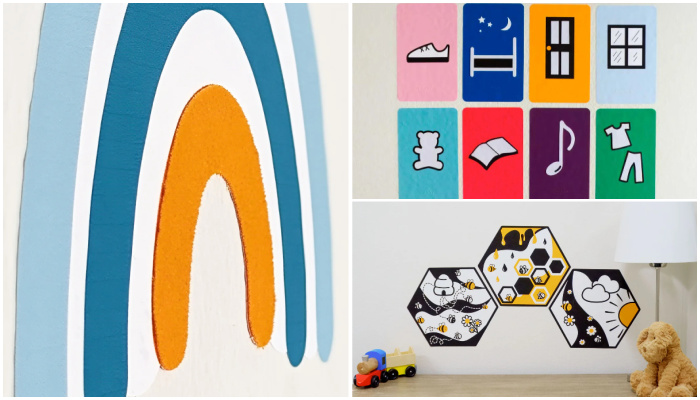
Parenting
Sensory Wall Art: 5 Tips to Create a Room Your Blind or Low-Vision Child Will Love
Even if your child can’t see their surroundings, personalizing and decorating their room with thoughtful, sensory-friendly design can make a big difference in their confidence, independence, and joy.
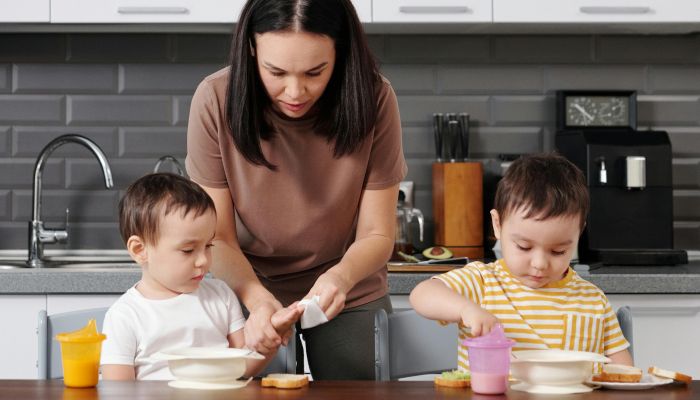
Parenting
4 Tips to Manage Twins Alone as a Single Parent
Taking care of twins alone as a single parent can feel overwhelming. Learn practical ways to help lighten the load.
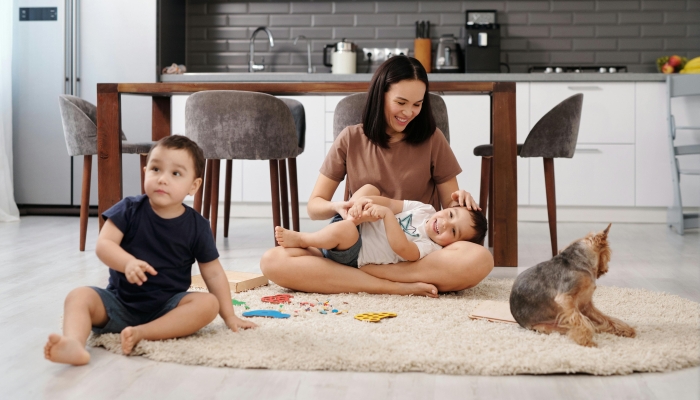
Parenting
How to Manage Twin Escalation Syndrome
Discover effective strategies for managing twin escalation syndrome, including promoting individuality and fostering positive interactions.